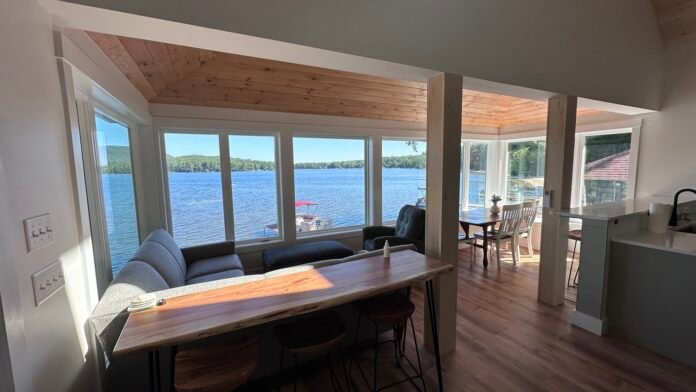Sustainable design services are essential for anyone looking to build or renovate a space that feels good to live or work in while being kind to the planet. Imagine walking into a home that stays comfortable year-round without wasting energy or paying high utility bills. Or think about working in an office designed to boost your productivity and well-being with natural light and fresh air. These are just a few of the many benefits that come with choosing sustainable design. This blog will explore the key elements of sustainable design, its benefits, and how it shapes our living and working environments.
Understanding Sustainable Design
Sustainable design is about more than just being green; it involves a holistic approach to architecture and urban planning. The aim is to create spaces that are energy-efficient, environmentally friendly, and conducive to a healthier lifestyle.
- Holistic Approach: Sustainable design considers the entire lifecycle of a building, from planning and construction to operation and demolition. This includes assessing the materials used, the energy consumed, and the overall impact on the environment.
- Energy Efficiency: One of the primary goals of sustainable design is to reduce energy consumption. This can be achieved through various methods, including passive solar design, which utilizes natural light and heat, and the installation of energy-efficient appliances and systems.
- Water Conservation: Sustainable renovation services also emphasize the importance of water conservation. This includes the installation of low-flow fixtures, rainwater harvesting systems, and greywater recycling, all of which help minimize water waste.
Benefits of Sustainable Designs
Making sustainable designs can provide numerous advantages, not just for the environment but also for homeowners and businesses.
1. Cost Savings
While the initial costs of sustainable design may seem higher, the long-term savings can be substantial. Energy-efficient buildings typically have lower utility bills, allowing homeowners to save money over time.
2. Improved Indoor Air Quality
Sustainable design focuses on using non-toxic materials and ensuring proper ventilation. This results in improved indoor air quality, which is essential for the health and well-being of occupants.
3. Enhanced Property Value
Properties designed with sustainability in mind often have higher market values. As more people become aware of the importance of eco-friendly living, homes and buildings that incorporate sustainable design principles are increasingly sought after.
4. Positive Environmental Impact
By reducing energy consumption, minimizing waste, and using eco-friendly materials, these designs contribute to a healthier planet. This aligns with the growing movement toward sustainability and environmental responsibility.
Key Elements of Sustainable Design
1. Sustainable Materials
The materials used in sustainable design play a critical role in minimizing environmental impact. Sustainable architecture firms often prioritize locally sourced, recycled, or reclaimed materials. This not only reduces the carbon footprint associated with transportation but also supports local economies.
2. Innovative Technology
Integrating technology into sustainable design can enhance energy efficiency and usability. Smart home technology, such as energy monitoring systems and automated lighting, allows occupants to track their energy usage and make adjustments as needed. This level of control contributes to a more sustainable lifestyle.
3. Outdoor Spaces
Incorporating outdoor spaces is another essential aspect of sustainable design. Green roofs, community gardens, and outdoor gathering areas promote biodiversity and enhance the well-being of residents. These spaces encourage social interaction, provide areas for recreation, and improve the overall aesthetic of a neighborhood.
4. Sustainable Site Planning
Site planning is crucial in sustainable design. A well-planned site considers factors like orientation, vegetation, and natural drainage. By strategically positioning buildings and incorporating green spaces, architects can enhance energy efficiency and promote environmental harmony.
Overcoming Challenges in Sustainable Design
While sustainable designs come with numerous benefits, there are challenges that architects and designers must navigate.
1. Higher Initial Costs
One of the primary barriers to sustainable design is the perception of higher upfront costs. Although these costs can be daunting, understanding the long-term savings associated with energy efficiency can help mitigate concerns.
2. Limited Availability of Materials
Access to sustainable materials can be a challenge, particularly in regions where such options are limited. Designers often need to be creative in sourcing materials that align with sustainable principles.
3. Regulatory Hurdles
Building codes and regulations may not always support innovative sustainable designs. Designers must navigate these rules and advocate for changes that promote sustainability while adhering to necessary standards.
Sustainable design services play a vital role in shaping eco-friendly spaces that benefit both individuals and the planet. By focusing on energy efficiency, cost savings, and community engagement, these services help create buildings that enhance the quality of life while minimizing environmental impact.
For those seeking exceptional sustainable design services, Hellbent Design Studio stands out as a top architecture firm in Portland, committed to innovative and responsible design practices. Contact Hellbent today to discuss how they can help bring your vision of an eco-friendly space to life, ensuring that your project not only meets your needs but also contributes positively to the environment and the community.



